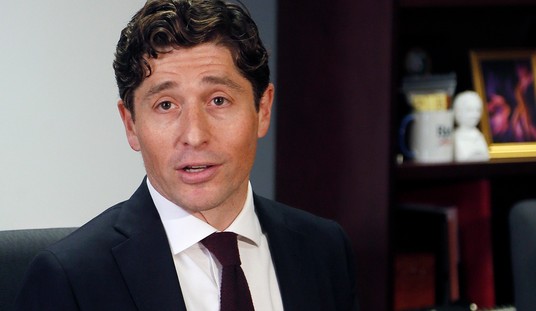If Barack Obama had trouble getting Benjamin Netanyahu to play ball with his administration before this weekend, the bloody IDF seizure of the flotilla that attempted to run the Gaza blockade gave him an opportunity to exert pressure on the Israeli leader. With the UN Security Council writing a statement expected to be harshly condemning towards Israel, Netanyahu and Obama conferred three times by phone over the last 24 hours. Jake Tapper reports that the US has decided to defend Israel — and got a watered-down, non-committal statement in front of the UNSC instead:
I’m told there won’t be any daylight between the US and Israel in the aftermath of the incident on the flotilla yesterday, which resulted in the deaths of 10 activists.
Regardless of the details of the flotilla incident, sources say President Obama is focused on what he sees as the longer term issue here: a successful Mideast peace process.
“The president has always said that it will be much easier for Israel to make peace if it feels secure,” a senior administration official tells ABC News.
The suggestion is that US condemnation of Israel would further isolate that country, and make further peace negotiations between the Israelis and Palestinians even more difficult.
Meanwhile, the UNSC’s draft statement avoids placing blame on anyone — and it also doesn’t prevent Israel from conducting the investigation into the flotilla incident:
The Security Council deeply regrets the loss of life and injuries resulting from the use of force during the Israeli military operation in international waters against the convoy sailing to Gaza. The Council, in this context, condemns those acts which resulted in the loss of at least ten civilians and many wounded, and expresses its condolences to their families.
The Security Council requests the immediate release of the ships as well as the civilians held by Israel. The Council urges Israel to permit full consular access, to allow the countries concerned to retrieve their deceased and wounded immediately, and to ensure the delivery of humanitarian assistance from the convoy to its destination.
The Security Council takes note of the statement of the UN Secretary-General on the need to have a full investigation into the matter and it calls for a prompt, impartial, credible and transparent investigation conforming to international standards.
The Security Council stresses that the situation in Gaza is not sustainable. The Council re-emphasizes the importance of the full implementation of Resolutions 1850 and 1860. In that context, it reiterates its grave concern at the humanitarian situation in Gaza and stresses the need for sustained and regular flow of goods and people to Gaza as well as unimpeded provision and distribution of humanitarian assistance throughout Gaza.
The Security Council underscores that the only viable solution to Israeli-Palestinian conflict is an agreement negotiated between the parties and re-emphasizes that only a two-State solution, with an independent and viable Palestinian State living side by side in peace and security with Israel and its other neighbours, could bring peace to the region.
The Security Council expresses support for the proximity talks and voices concern that this incident took place while the proximity talks are underway and urges the parties to act with restraint, avoiding any unilateral and provocative actions, and all international partners to promote an atmosphere of cooperation between the parties and throughout the region.
Note that the statement “condemns those acts which resulted in the loss of at least ten civilians,” while not specifying the acts themselves or the actors responsible. It’s a carefully-worded statement that refrains from placing blame on anyone — exactly the kind of statement that an enforcement body should make when the facts are in dispute, or at least somewhat so. If Tapper’s sources are accurate, it appears that the White House succeeded in turning the UNSC attention from the flotilla incident and back towards the longer-term goal of the peace talks and the eventual settlement of all disputes in the region.
The question that will be on everyone’s mind will be what Netanyahu had to offer in order to get Obama to defend Israel in this matter. As Tapper notes, this was the moment of maximum leverage for Obama over Netanyahu, and it seems doubtful that he would have allowed that moment to pass without winning something for Obama’s own agenda, especially given the outcome at the UNSC.
Update: Hugh Hewitt wonders why Obama didn’t just veto the resolution:
Of course the world would prefer that Israel be able to interdict resupply of terrorists without loss of life, and the ship should have gone to the Israeli port for inspection. It is a complicated, dangerous situation.
But President Obama advances resolution of the situation not one inch by joining in the pounding of Israel. The unprecedented level of hostility to Israel from an American Administration continues, and Israel and its supporters must recognize that President Obama is not a reliable supporter when the going gets very tough indeed.
I’d put that in the “maximum leverage” category as well. If the US had vetoed it, the vetoed resolution would have specifically condemned Israel. Instead, it just condemns the loss of life, a statement that leaves open the question of blame. Running the blockade qualifies under that construct, too.








Join the conversation as a VIP Member